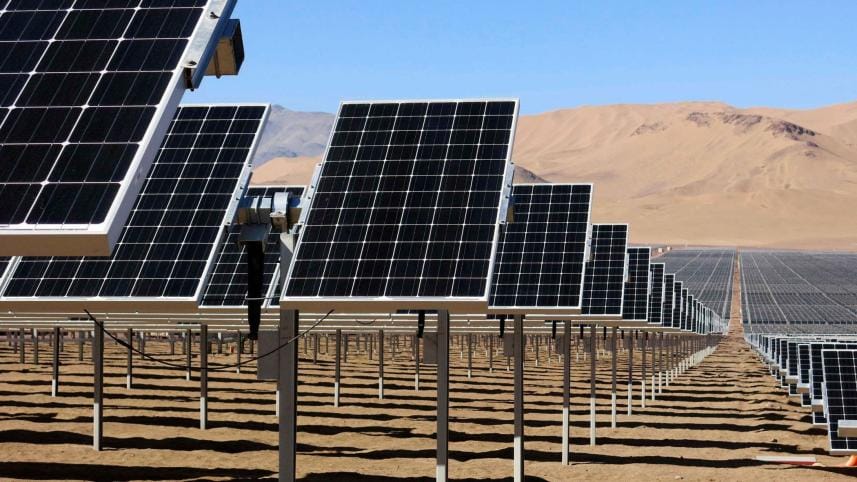Transition to renewable energy must start now

The difficulties associated with the transition from fossil fuels to renewable energy sources such as solar and wind were touched upon in the last US presidential debate, bringing the contentious topic to the forefront again. Hopefully, it's not too late.
Both petroleum and natural gas reserves will be depleted in approximately 50 years at the current rate of production and consumption. This is a formidable challenge to humanity. Even if new reservoirs are found—which I can attest is an increasingly difficult and elusive prospect after a career of studying and developing ways to find them—these non-renewable resources will inevitably run out. It takes millions of years for geological and geochemical processes to generate natural gas or petroleum.
Based on the consumption rates alone, there simply must be a transition to renewable energy sources for the survival of the United States and the world. The true urgency of this transition becomes clearer when we consider the adverse impact of fossil fuel use on global warming, and the effects associated with any attendant climate change, including rising sea levels, eroding coastlines, and intensified natural disasters—drought, forest fires, catastrophic flooding.
Sea level is already rising. If this continues at the current accelerated rate, vast low-lying areas of Bangladesh and other countries of the world would be uninhabitable, causing economic and ecological catastrophe of gargantuan proportions. In 30 years, Bangladesh will lose approximately one-tenth of its land and fifteen million people will be displaced. Social unrest, political upheavals, wars, famine, plague, and unimaginable sufferings would be unleashed on Bangladesh and other vulnerable countries. The desperate population would be forced to migrate to higher ground. Nobody would be spared from the collateral damage and destruction. The entire humanity would descend to a horrible dystopia.
Not everyone is burying their heads in the sand. The US domestic and international private sector has made noteworthy progress in developing electric vehicles. And while the US government has sadly reduced financial incentives for renewable energy and relaxed carbon emission standards over the last few years, we've noticed the opposite from many other governments of the world.
In several countries, we've seen notable progress towards increased reliance on renewable energy sources such as hydrothermal, nuclear, wind, and solar for electric power generation. Unfortunately, the United States is behind the pack. Bold implementation of a visionary plan, obviously, requires leadership and endurance to face short-term financial pains for survival and the greater good in the future.
Nobody disagrees that the transition from fossil fuels will be a Herculean task. We use about two-thirds of our fossil fuel production for transportation, and one-fourth in industrial applications, such as the production of plastics. How would we replace that? How would we handle the retraining and placement of millions of workers unemployed from shrinking oil, gas, and petrochemical industries, and their associated manufacturing and service sectors?
Finding solutions to these problems will be formidable. But there are no alternatives. We will run out of fossil fuels; we will have to transition eventually whether we like it or not.
We can't wait for divine or extraterrestrial intervention to magically transform non-renewable hydrocarbon into a renewable resource. To save the planet, the transition must start now, with all hands on deck. Joe Biden and Kamala Harris won the 2020 US presidential election. President-elect Biden on January 20, 2021—the day of his inauguration—will rejoin the Paris Climate Agreement by an executive order. The main goal of this agreement is to lower the carbon emission by reducing the use of fossil fuels, which will slow down global warming.
A year of dark winter, unleashed by the US withdrawal notification on November 4, 2019, would be replaced by hope and optimism for the entire humanity with the US re-entering the Paris Climate Agreement.
Dr Mostofa Sarwar is professor emeritus at the University of New Orleans, dean and ex-vice-chancellor of Delgado Community College, and commissioner of the governing board of Regional Transit Authority of New Orleans.
Email: asarwar2001@yahoo.com




 For all latest news, follow The Daily Star's Google News channel.
For all latest news, follow The Daily Star's Google News channel.
Comments